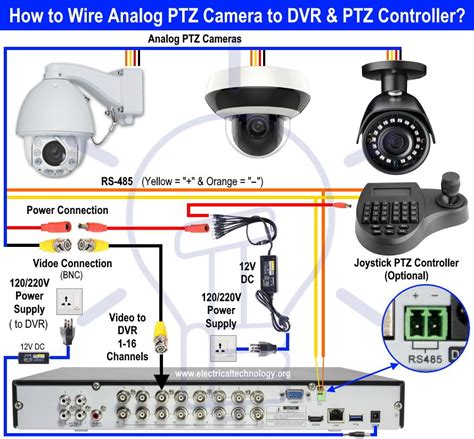The importance of DVR (Digital Video Recorder) technology cannot be overstated. With the rise of smart homes and the increasing need for home security, DVRs have become an essential component in many households. Whether you're a homeowner looking to upgrade your security system or a business owner seeking to protect your assets, understanding DVR tech specs is crucial in making an informed decision. In this article, we'll delve into the world of DVR technology, exploring its key features, benefits, and specifications.
DVR technology has revolutionized the way we record and store video footage. Gone are the days of VHS tapes and bulky recording equipment. Modern DVRs are sleek, compact, and packed with features that make them an indispensable tool for anyone looking to secure their property. From motion detection to remote access, DVRs offer a range of features that cater to different needs and preferences.
Understanding DVR Tech Specs
When it comes to choosing a DVR, it's essential to consider the technical specifications. These specs can make or break the performance of your DVR, and understanding them can help you make an informed decision. Here are some key DVR tech specs to look out for:
- Resolution: Measured in pixels, resolution determines the clarity of the video footage. Look for DVRs with high resolution, such as 1080p or 4K, for clear and detailed video.
- Storage Capacity: This refers to the amount of storage space available on the DVR. Consider a DVR with a large storage capacity, such as 1TB or 2TB, to store hours of footage.
- Compression Format: This determines how the video footage is compressed and stored on the DVR. Look for DVRs with H.264 or H.265 compression format for efficient storage and playback.
- Recording Modes: DVRs can record in various modes, including continuous, motion detection, and scheduled recording. Consider a DVR with multiple recording modes to cater to different needs.

DVR Types: A Comprehensive Guide
There are several types of DVRs available on the market, each with its unique features and benefits. Here are some of the most common types of DVRs:
- Analog DVR: These DVRs use analog cameras and are suitable for small-scale installations.
- Hybrid DVR: These DVRs support both analog and digital cameras, making them ideal for upgrading existing analog systems.
- Network Video Recorder (NVR): These DVRs are designed for IP cameras and offer advanced features like remote access and motion detection.
Analog DVRs: Pros and Cons
Analog DVRs are a popular choice for small-scale installations. Here are some pros and cons to consider:
- Pros:
- Affordable
- Easy to install
- Suitable for small-scale installations
- Cons:
- Limited resolution
- Prone to interference
- Not scalable

DVR Features: What to Look For
When choosing a DVR, it's essential to consider the features that matter most to you. Here are some key DVR features to look out for:
- Motion Detection: This feature alerts you to any motion detected by the camera.
- Remote Access: This feature allows you to access your DVR remotely using a smartphone or computer.
- Scheduled Recording: This feature allows you to schedule recordings in advance.
- Video Analytics: This feature provides insights into video footage, such as people counting and object detection.

DVR Installation: A Step-by-Step Guide
Installing a DVR can be a daunting task, but with the right guidance, it can be a breeze. Here's a step-by-step guide to installing a DVR:
- Step 1: Choose a Location: Choose a location for your DVR that is secure and has good airflow.
- Step 2: Connect the Cameras: Connect the cameras to the DVR using coaxial cables or network cables.
- Step 3: Connect the Monitor: Connect the monitor to the DVR using an HDMI cable.
- Step 4: Configure the Settings: Configure the settings on the DVR, including the recording mode and storage capacity.

Conclusion: Choosing the Right DVR
Choosing the right DVR can be a daunting task, but with the right guidance, it can be a breeze. Consider your needs and preferences, and look for DVRs with the features that matter most to you. From resolution to storage capacity, there are many factors to consider when choosing a DVR. By understanding DVR tech specs and features, you can make an informed decision and choose a DVR that meets your needs.






What is the difference between a DVR and an NVR?
+A DVR (Digital Video Recorder) is designed for analog cameras, while an NVR (Network Video Recorder) is designed for IP cameras.
How do I choose the right DVR for my needs?
+Consider your needs and preferences, and look for DVRs with the features that matter most to you.
Can I access my DVR remotely?
+Yes, many DVRs offer remote access, allowing you to access your footage from anywhere using a smartphone or computer.
We hope this comprehensive guide has helped you understand DVR tech specs and features. Whether you're a homeowner or a business owner, choosing the right DVR can be a daunting task. By considering your needs and preferences, you can make an informed decision and choose a DVR that meets your needs.
